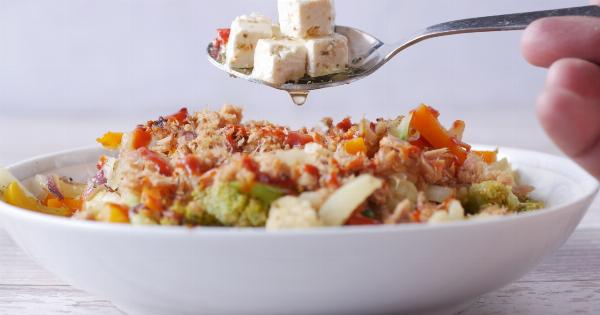Salads can be a healthy and delicious meal option. Whether you’re trying to lose weight or just want to get more greens in your diet, salads can be a satisfying and nutritious choice.
However, there are some common pitfalls to watch out for when it comes to making and ordering salads. In this article, we’ll review some of the most common salad pitfalls and how to avoid them.
Too much dressing
Dressing can be a delicious addition to any salad, but it’s easy to go overboard. Dressings can be high in calories, fat, and sugar – not to mention salt. Many restaurant salads are drenched in dressing, making them less healthy than you might think.
To avoid this pitfall:.
- Ask for salad dressing on the side so you can control how much you use
- Choose dressings that are lower in calories and fat, such as vinaigrettes or balsamic vinegar
- Make your own dressing at home using healthy ingredients like olive oil, lemon juice, and herbs
Not enough protein
Many people make the mistake of thinking that a salad alone is enough to be a meal. However, without enough protein, a salad can leave you feeling hungry and unsatisfied. This can lead to overeating later on. To avoid this pitfall:.
- Add a source of protein to your salad, such as chicken, fish, tofu, or beans
- Choose salads that already include protein, such as a Cobb salad or a Greek salad
- Make sure to include enough protein in your overall daily diet, not just in your salad
Choosing the wrong greens
Not all greens are created equal when it comes to nutrition and taste. Some greens, such as iceberg lettuce, are mostly water and don’t offer many nutrients. Other greens, such as kale or spinach, are packed with vitamins and minerals.
To avoid this pitfall:.
- Choose dark, leafy greens like spinach, kale, or arugula
- Mix up your greens to add variety to your diet
- Avoid iceberg lettuce or other greens that are mostly water
Adding too many toppings
Sure, a salad with lots of toppings can be delicious, but it can also be high in calories and fat. Toppings like cheese, croutons, and bacon can be particularly problematic. To avoid this pitfall:.
- Choose toppings that are low in calories and fat, such as vegetables or nuts
- Avoid toppings like cheese, croutons, and bacon
- Use toppings sparingly to maintain a healthy balance
Skipping the veggies
A salad is a great way to get more vegetables into your diet, but many people don’t add enough veggies to their salads. This can leave your salad lacking in nutrition and flavor. To avoid this pitfall:.
- Add a variety of vegetables to your salad, such as carrots, cucumbers, and tomatoes
- Use a mix of raw and cooked vegetables for added variety
- Choose a variety of colors to ensure a balance of nutrients
Not being mindful of portion sizes
Even healthy foods can lead to weight gain if you eat too much of them. This is especially true with salads, since it’s easy to go overboard with toppings and dressing. To avoid this pitfall:.
- Be mindful of portion sizes – a serving of salad is usually around 2 cups
- Use measuring cups or a food scale to ensure you’re not overeating
- Don’t feel like you have to finish a giant restaurant-sized salad
Skipping healthy fats
Healthy fats, such as those found in avocadoes, nuts, and olive oil, are an important part of a healthy diet. However, many people skip these healthy fats when making a salad, opting for fat-free or low-fat options instead. To avoid this pitfall:.
- Add healthy fats to your salad, such as avocado, nuts, or olive oil
- Choose full-fat dressings in moderation instead of fat-free or low-fat options
- Remember that healthy fats are an important part of a balanced diet
Not considering food allergies or intolerances
For people with food allergies or intolerances, ordering or making a salad can be tricky. Some common allergens, such as nuts or cheese, are often found in salads. To avoid this pitfall:.
- Read menu descriptions carefully or ask your server about allergens
- If making a salad at home, be mindful of any food allergies or intolerances in your household
- Look for substitutions, such as soy cheese or seed-based dressing, if you have a food allergy or intolerance
Not practicing food safety
Raw greens and other salad ingredients can carry bacteria, such as E. coli or salmonella. To avoid getting sick, it’s important to practice good food safety habits when making and ordering salads. To avoid this pitfall:.
- Wash your hands thoroughly before making a salad and after handling raw ingredients
- Wash all fruits and vegetables before using them in your salad
- Be wary of restaurants that don’t follow good food safety practices
Conclusion
Salads can be a delicious and nutritious meal option, but they do come with some common pitfalls. By being mindful of these pitfalls and taking steps to avoid them, you can ensure that your salads are as healthy and satisfying as possible.






























